"Food systems impact on the climate, water and health – and vice versa"
What will it take to ensure that the world's population has an adequate supply of healthy food in future? The UN's Food Systems Summit in September 2021 will focus on sustainable food systems which also help to protect biodiversity and the climate. National discussions were held on this topic in Switzerland between March and June 2021 as part of the preparations. A progress review is now being undertaken in Rome. Christine Schneeberger is attending this event as a member of the Swiss delegation.
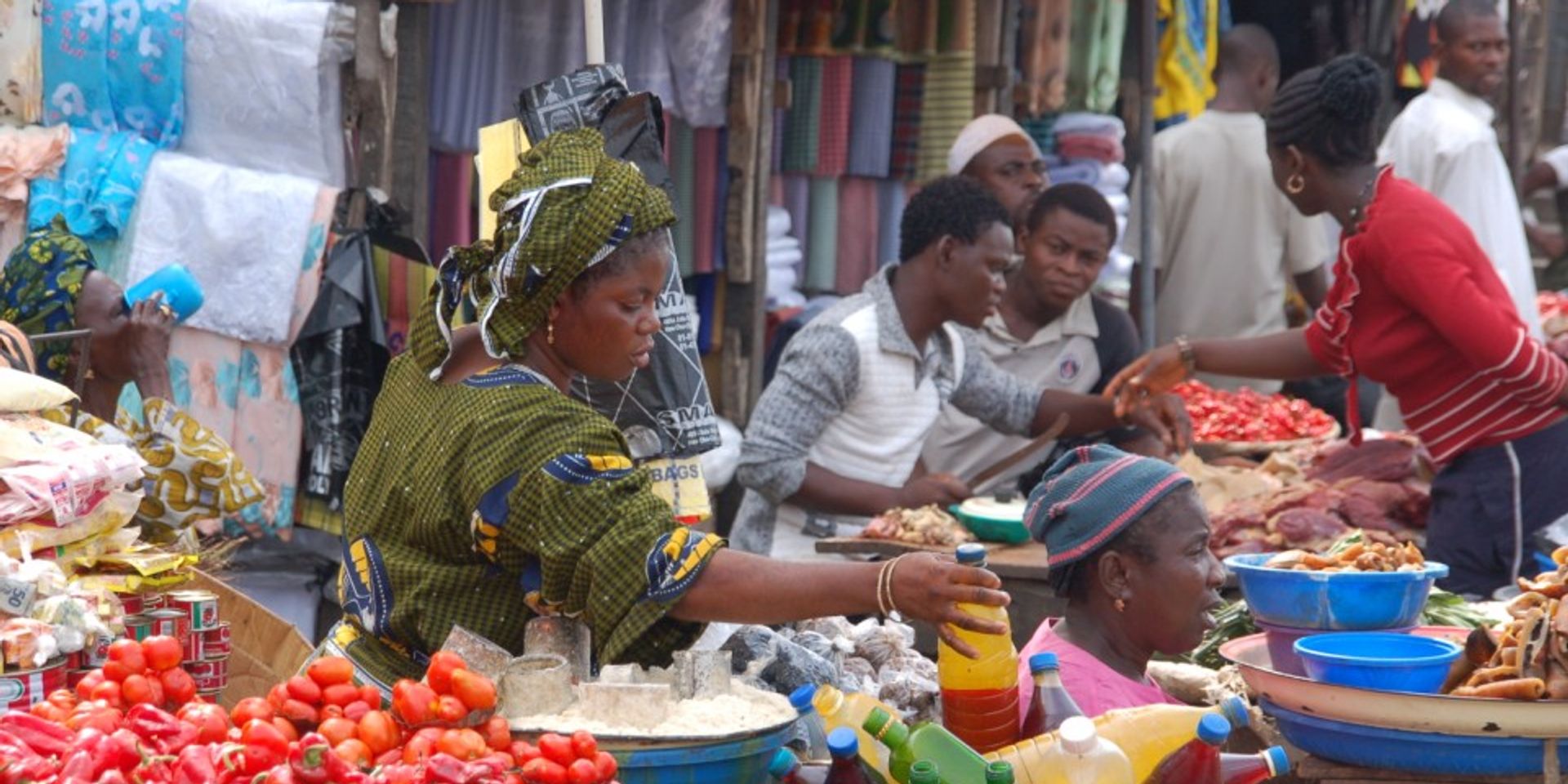
A market in Nigeria: traders selling chillies, oil palm fruit, textiles, drinks and other products to local people. © International Institute of Tropical Agriculture (IITA)
Christine Schneeberger is deputy head of the Swiss Agency for Development and Cooperation's (SDC) Global Cooperation Department which implements the Global Programme Food Security. She is representing the SDC in the Swiss delegation at the pre-summit being held in Rome and took part in an interview with FDFA Communication.
How to make food systems sustainable is one of the topics that will be discussed at the Food Systems Summit in New York this autumn. What role is Switzerland playing and how is it preparing for the summit?
Discussion sessions were held in Switzerland between March and June – one at national level and three in cities in all three language regions. Representatives of agriculture, science, the private sector and civil society took part in talks with government to adopt a common position.
Switzerland has supported the development of sustainable food systems abroad for many years which is why the FDFA held additional, independent discussions via its Agriculture and Food Security network. This attracted strong interest with around 290 participants from 69 countries.
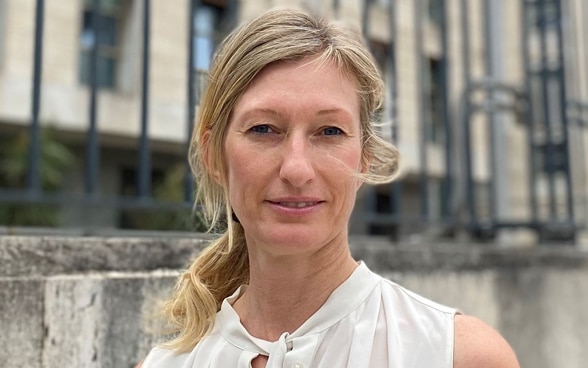
What did the discussions cover?
We looked at how we can provide healthy and affordable food for everyone through sustainable agriculture and how the livelihoods of people in rural regions can be improved. The particular challenges facing people living in mountain regions are clearly also an issue for Switzerland.
We also saw that young people are interested in food systems and support change towards greater sustainability. Young people from various countries started engaging in dialogue last year as part of the "Bites of Transfoodmation" project which we are jointly supporting with the Swiss representation in Rome. They drew up a manifesto and were invited by the G20 states to give a presentation at their 'Food for Earth' event held in Naples last week.
You are now representing the SDC at a three-day pre-summit in Rome. What does this international conference aim to achieve?
The Rome pre-summit aims to pull together the best ideas and approaches from the discussions held at national and global level and to identify joint priorities. We are looking at the latest scientific findings, discussing innovative approaches and exploring how food systems impact on the climate, the availability of water and health and vice versa. Countries also have the opportunity to present their new transformation plans. The hope is to mobilise public and private investment. In the best case scenario, all actors will reach a common understanding on sustainable food systems which is also supported by the private sector.
What does Switzerland hope to achieve in Rome?
The Swiss delegation is presenting Switzerland's transformation plan for a more sustainable food system. We are able to contribute vast expertise and many years of project experience. We hope this enables policy measures to be adopted which are widely accepted and to establish a solid framework for more sustainable food systems. These measures must also be viable in low and middle-income countries.
We will also use this meeting of all the key actors in Rome to drive our priorities forward and to strengthen or form strategic coalitions and partnerships.
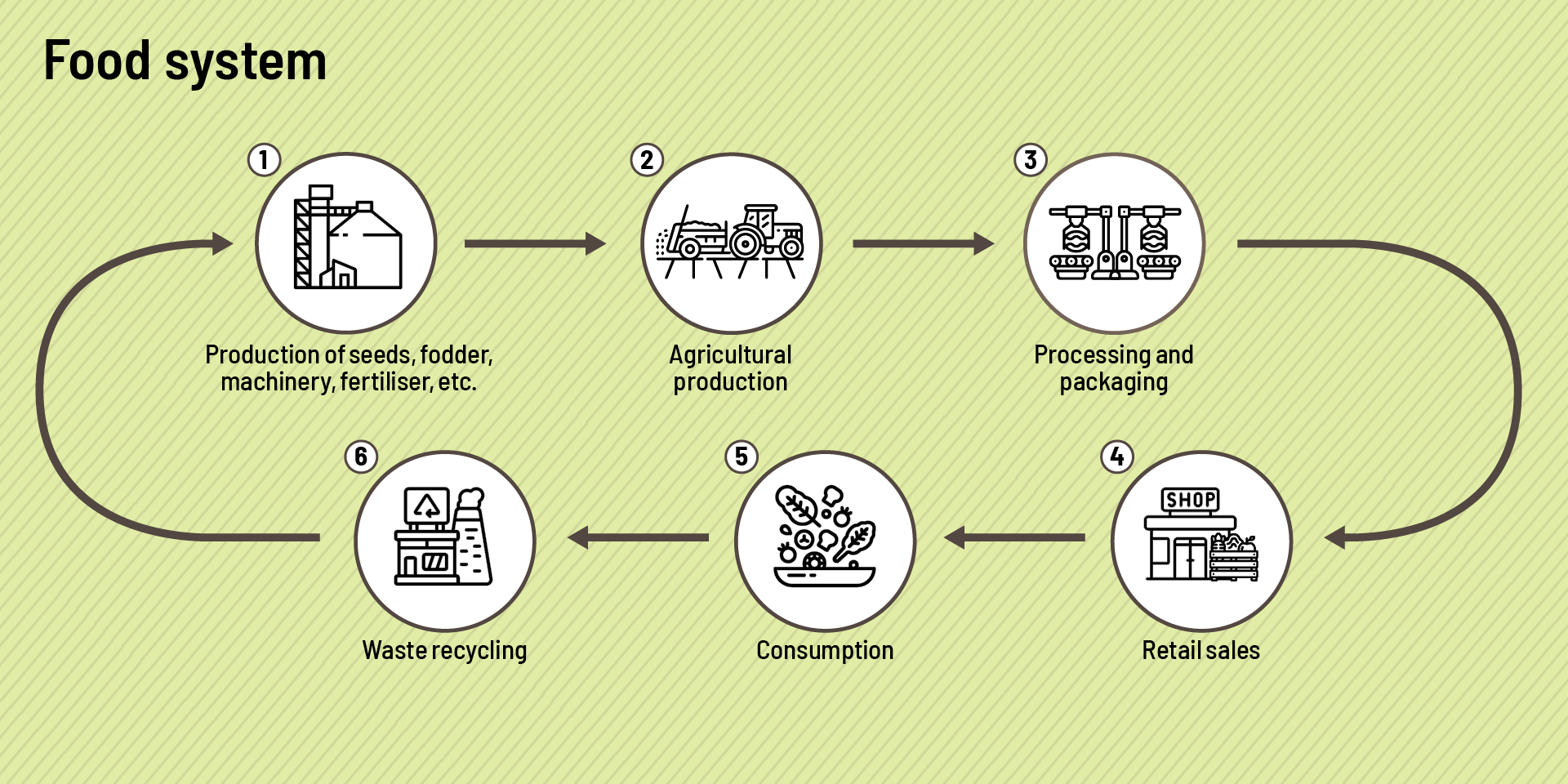
What is a "sustainable food system" exactly?
A food system includes all sectors and actors related to food – from cultivation to consumption and back to the earth again. A range of criteria must be met to establish a sustainable food system. People must know how to eat a healthy diet, have access to healthy food and be able to afford to buy it. Food must also be produced in a way that has negligible environmental impact and does not exacerbate climate change or reduce biodiversity. Crop losses and food waste should also be kept to a minimum. The UN Sustainable Development Goals (SDGs) 2 'end hunger' and 12 'ensuring sustainable consumption and production patterns' are focused on these issues.
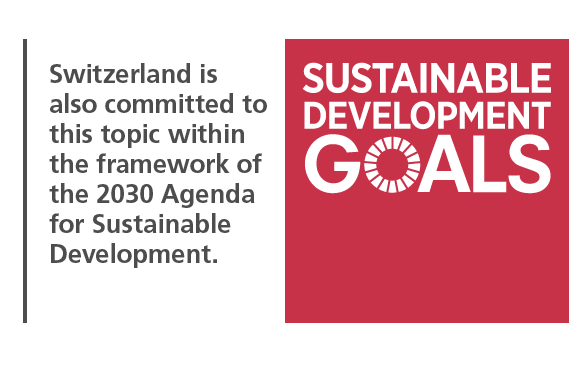
We talk about a food system because all these aspects are closely interrelated and affect one another – a bit like a mobile. Local and international food systems are also interdependent. Unsustainable patterns of production and consumption have knocked this 'food system mobile' alarmingly out of kilter, which is having a tremendously detrimental impact on disadvantaged communities in the Global South as well as on the environment. Sustainable food systems should help to restore equilibrium.
Why are sustainable food systems and food security so important to the SDC?
Because the number of people suffering from starvation has been on the increase again since 2015 after falling for decades. COVID-19 has worsened the situation. The UN's World Food Programme estimates that 270 million people in 79 countries are affected by acute food insecurity. This shows that the current food systems are not providing enough healthy and affordable food for the majority of people worldwide. We help to reduce hunger and provide healthier food through our programmes on the ground and also contribute just under CHF 100 million annually to the World Food Programme.
The SDC places great emphasis on this issue as it affects lots of other areas. While our current food systems are being hit hard by climate change, they are also actually responsible for one third of global greenhouse gas emissions. An estimated 70% of the 1.4 billion people in extreme poverty live in rural areas and most of them are dependent on agriculture at least to some extent. From the SDC's perspective, food is the most effective way of having a positive impact simultaneously on human health, the climate, biodiversity and the sustainable use of resources – in other words the health of our planet.
The Swiss delegation will be led by the Federal Office for Agriculture (FOAG). Besides the FDFA, other key actors are also involved. Is the delegation able to cooperate successfully?
It is all running really smoothly. The delegation also includes the Federal Office for the Environment (FOEN), the Federal Food Safety and Veterinary Office (FSVO), representatives from science and research, various associations and the private sector. Our delegation's make-up reflects one of the Food Summit's key priorities – everyone has to join forces to find solutions that improve the sustainability of food systems worldwide.

Doesn't this involve some conflicts of interest?
Differences of opinion between various stakeholders is perfectly normal. But the transformation to more sustainable food systems will only succeed if it has widespread support. All stakeholders need to be on board right from the outset. That's exactly what we're doing in Switzerland. Most of the Swiss delegation members also serve on our national committee at the UN's Food and Agriculture Organization (FAO) which meets four times a year. In this forum we listen to and learn from one another, promote common solutions, implement them jointly or introduce them to the general debate. Another example of our collaboration is a publication on agroecology which we produced as a committee and published in the spring.
Food Systems Summit
Die The Food Systems Summit aims to step up the pace of implementation of the 2030 Agenda's Sustainable Development Goals. Food systems include all sections of society involved in food supply (see diagram) including: upstream products, such as fertilisers or pesticides, cultivation and harvesting, processing and packaging, transport and distribution, preparation and consumption, but also the management of waste produced or the energy and water consumed as part of the process. If food systems are set up sustainably, this has a knock-on effect on the other areas.
This is why UN Secretary-General António Guterres convened the Food Systems Summit for September 2021 in New York. In 2019, he declared that the world was regressing in terms of attaining the 2030 Agenda SDGs, calling for a "decade of action" in response. As Jacques Ducrest, the Federal Council delegate for the 2030 Agenda, says, "food systems are linked to each of the 17 Sustainable Development Goals." This means progress on establishing sustainable food systems is crucial to achieving the SDGs by 2030.
The SDGs set under the 2030 Agenda include "end hunger", "ensure healthy lives and promote well-being", "gender equality", "clean water and sanitation", "industrialisation, innovation and infrastructure", "responsible consumption and production" and "climate action".
"Bites of Transfoodmation" project
Sustainable food systems are also important to the G20 countries. The programme for the G20 ministerial meeting on Environment, Climate and Energy, hosted by the Italian government in Naples on 22 and 23 July 2021, included various events on "Food For Earth".
One of these featured the Swiss project "Bites of Transfoodmation", which was launched by the Permanent Mission of Switzerland to the UN in Rome, the Swiss embassy in Rome, the Istituto Svizzero, the Università della Svizzera italiana in Lugano and Presence Switzerland. This project seeks to encourage debate amongst young people on how the transformation to sustainable and crisis-resilient food systems for everyone can be achieved. The project's ethos is that nutrition can no longer be just about food – it is also a key element of culture and health. In the build-up to the Food Systems Summit in September 2021 in New York, "Bites of Transfoodmation" is organising various events – such as workshops and discussion sessions – with students, researchers, farmers, architects, nutritionists, sportspeople, food sector actors, and consumers. "The people with the best ideas don't always have access to institutions or financing opportunities," explained Pio Wennubst, Permanent Representative of Switzerland to the UN in Rome. He took part in a panel discussion organised by 'Bites of Transfoodmation' at the G20 conference in Naples where the project was presented to ministers attending the event.
A manifesto was drawn up as part of "Bites of Transfoodmation" which sets out specific measures for developing sustainable food systems. It will be presented at the Food Systems Summit.

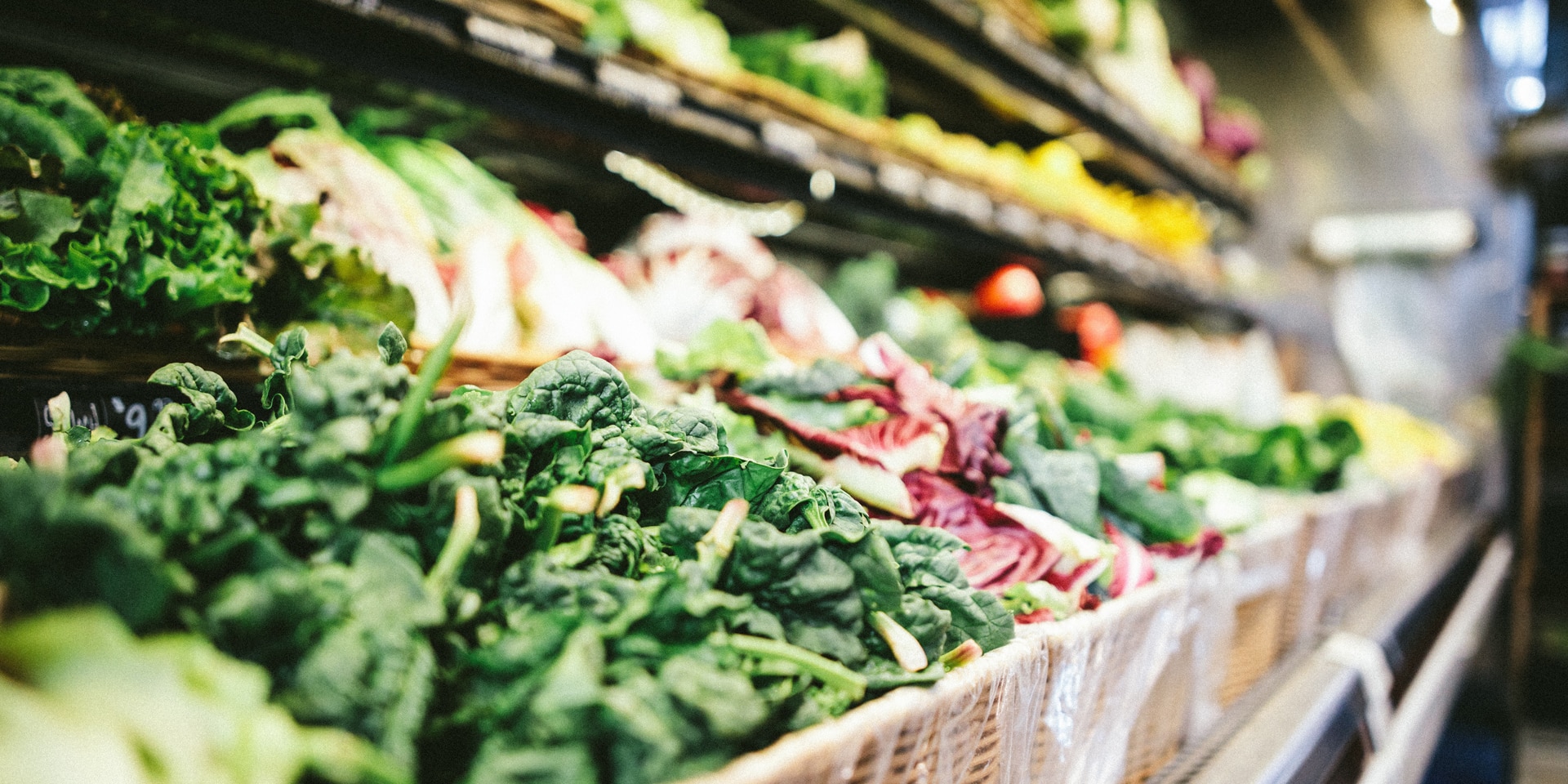
.jpg)